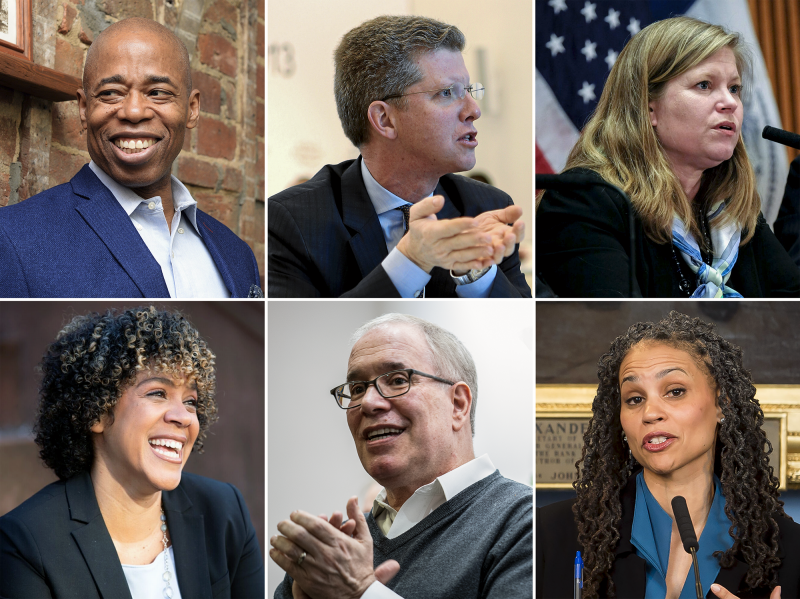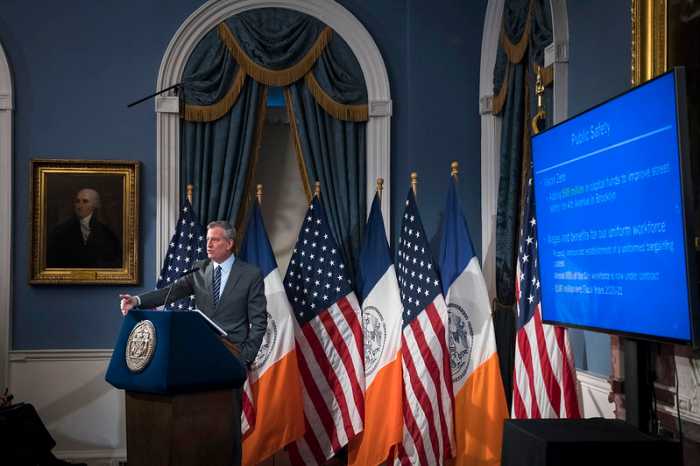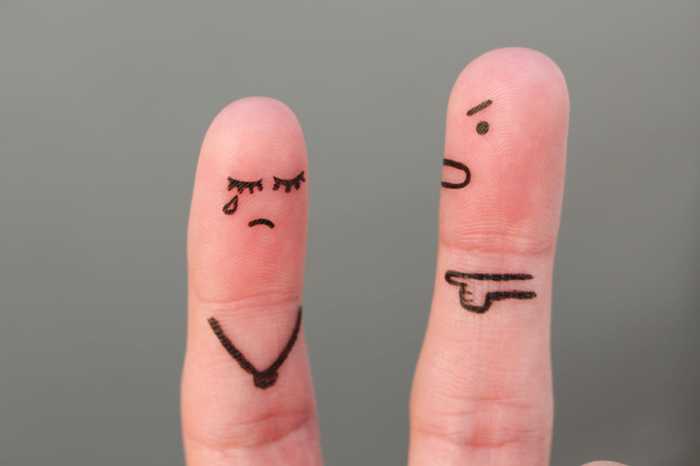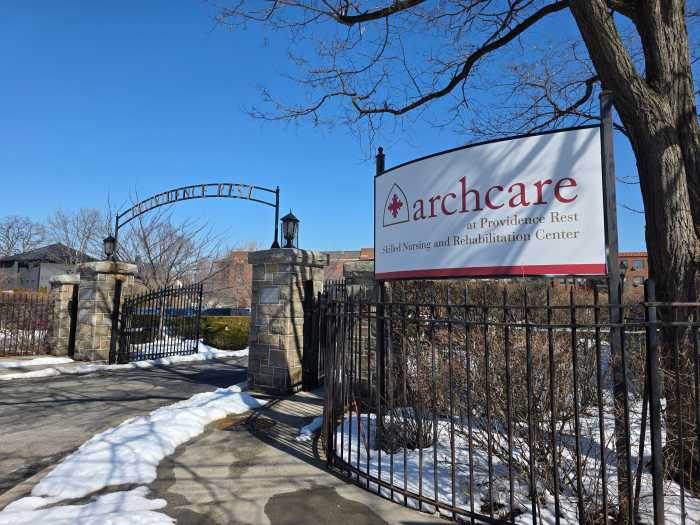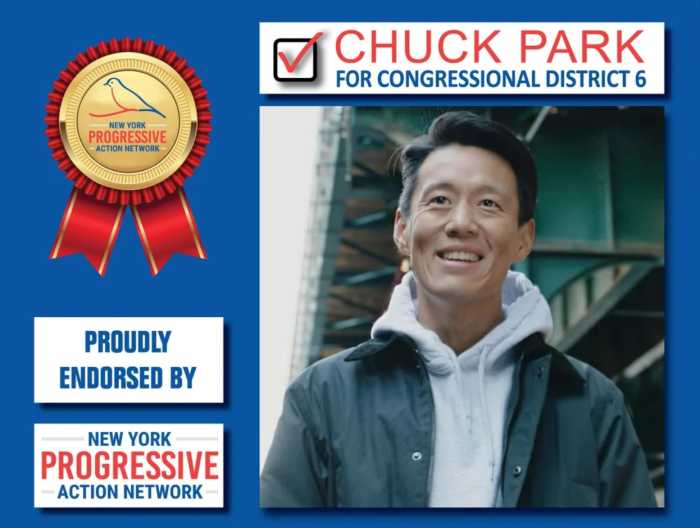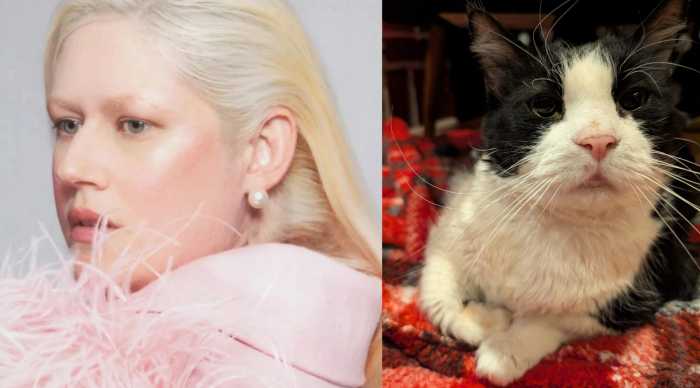The race to crown a successor to Mayor Bill de Blasio (D) has officially begun.
Last Tuesday, the Jim Owles Liberal Democratic Club hosted a forum for New York City’s mayoral candidates over Zoom. The candidates in attendances were City Comptroller Scott Stringer (D); Brooklyn Borough President Eric Adams (D); Phipps Neighborhoods CEO Dianne Morales; former City Sanitation Chief Kathryn Garcia; civil rights activist Maya Wiley; and former United States Secretary of Housing and Urban Development Shaun Donovan. We also saw a late appearance from Councilmember Carlos Menchaca (D–Brooklyn), who announced his intention to join the race.
The forum was moderated by Jim Owles Club President Allen Roskoff and City Council Speaker Corey Johnson (D-Manhattan).
“Thank you all for being here,” said Johnson. “My hope is that tonight’s forum is going to be an opportunity for the candidates who are declared and running for mayor, for them to discuss some of the biggest issues that our city faces – whether it’s how we deal with a tragic, record number of homeless New Yorkers and children across New York City, the housing crisis that our city faces right now, the long road towards recovery coming out of this economic collapse from COVID-19… what candidates are going to do to make sure that our school system, our 1.1 million children in New York City get the best education… those are some of the issues that I look forward to hearing about tonight.”
Dianne Morales was the outsider of the group, admitting in her opening statement that she had no political experience. However, she asserted that, as mayor, her experience as a grassroots organizer would help her empathize with the most marginalized New Yorkers.
“I have spent my entire life working in communities, shoulder-to-shoulder with people, trying to help people access opportunities to live in dignity and provide for their families,” said Morales. “I am an Afro-Latina, a first generation college graduate, and the single mother of two young college students. While I have navigated personal challenges of my own, I also have been helping black and brown families access opportunities to move out of poverty through education and economic growth. My personal and professional experiences have made me acutely aware of longstanding, deeply-ingrained systemic and structural barriers that prevent true equity and justice for so many of our communities here.”
Maya Wiley also invoked her personal life in her opening pitch. As a low-income person of color, she has both faced and witnessed discrimination all her life. In her childhood, a close friend of hers had to leave the neighborhood because her landlord decided to raise rents. Later, as a lawyer, her first case was before the City Human Rights Commission, representing a man who lost his job and his home for being HIV positive.
“[The case] gave me the opportunity to spend the next 25 years of my career as a civil rights attorney, as a racial justice advocate,” said Wiley. “Constantly focused on the issue of, how do we dismantle broken systems? How do we dismantle what we have built that is broke? And what COVID did, what George Floyd did, is they blew the curtain back on what so many of us have known for not only our lifetimes, but our parents’, and our grandparents’.”
Meanwhile, Shaun Donovan branded himself as the “true progressive” of the race. He started his career working for the National Coalition for the Homeless, and then for a nonprofit organization in the Bronx; in both positions, he helped to rebuild the derelict, impoverished neighborhoods he walked past as a child in the 70’s. He also holds the distinction of being the first cabinet secretary in U.S. history to endorse marriage equality.
“We have to measure our recovery by the progress that we make for the most vulnerable,” said Donovan. “I believe that I’m the true progressive in this race because of the progress I’ve made for the most vulnerable over my 30-year career. I know that we can dramatically reduce homelessness in this country, because I led the national strategy to cut homelessness by 25 percent, and ended veteran homelessness in more than a hundred cities. And I know that we can fight racial inequality in our schools because as HUD Secretary, I demanded that every community in this country prioritize racial equity.”
Eric Adams brought up his 42 years of experience as an activist, a policeman and a lawmaker, guiding New York through some of its darkest times. The City may be facing multiple crises right now, he said, but he has helped the City through crises before, and as mayor, he can do it again.
“I don’t have to tell you about the challenges we’re facing now; crime, enormous deficit, health crisis,” said Adams. “To me, it’s deja vu. We were here before. During the 80’s and 90’s, I was part of a small group of law enforcement officers, who started to use real technology to fight crime in a real way. We went from having 2,000 homicides a year, 98,000 robberies, every car having a ‘no radio’ sign in it. We came together, and were able to turn around this city.
“But right now, our city is dysfunctional. Most of the problems we are facing are self-inflicted. And these problems existed long before COVID-19.”
Scott Stringer also touted his experience, albeit in more concrete terms. As Comptroller, he has devised specific, multi-stepped plans for saving small businesses, building low-income housing, and reforming NYCHA, among other things. He claimed he would approach his job as mayor with the same sort of logistics-based approach – instead of just issuing platitudes about what needs to change.
“I’m running for mayor because I want to bring leadership back to City Hall,” said Stringer. “I don’t have to tell anyone on this Zoom tonight that New York City is facing enormous challenges. We have a social justice crisis, an economic crisis, a public health crisis, raging all at once. But I have a track record of fighting for justice, and I have the financial expertise and the vision to tackle these challenges head-on. I’m gonna manage the hell out of this city.”
Kathyrn Garcia, however, asserted that New York needs a mayor who’s uniquely experienced in crisis management – like her. She was appointed the food czar during the worst of the COVID-19 pandemic, distributing over 100 million meals to vulnerable New Yorkers. She has also served as the interim chair of NYCHA and lead czar, overseeing efforts to reduce tenants’ exposure to lead. The other candidates may have impressive resumes, but crisis management, she said, is her bread and butter.
“If my name is familiar to you, it is because I have worked in New York City government in leadership positions for my entire career. I’ve been the person to call when there’s a crisis,” said Garcia. “We need an experienced hand on the wheel. And the fact is, you won’t find a candidate with more executive and crisis management experience than I have.”
Finally, Carlos Menchaca ended the night on an optimistic note. As Councilmember, he said, it’s inspiring to see what working class communities are capable of when they band together and try to affect positive change as a cohesive unit. If elected, he pledged that he would bring that same energy to the office of mayor.
“COVID has really impacted black and brown communities; those are communities that I’ve been organizing with for such a long time,” said Menchaca. “It’s in the City Council and the work I’m doing with many of my colleagues where we’ve actually been seeing some amazing things happen. Just look at participatory budgeting, and how people who have never engaged in government are deciding how to make their communities blossom. That’s the kind of spirit that I want to bring into this race.”
One notable exclusion from the candidate forum was former Veterans’ Services Commissioner Loree Sutton. Sutton recently claimed that she was in favor of requiring demonstrators to obtain permits before staging public protests. To the Jim Owles Liberal Democratic Club, this position was a deal-breaker.
“The Jim Owles Liberal Democratic Club stands behind its decision to not entertain a candidate who is so ignorant and conservative,” said Allen Roskoff.
The NYC Mayoral Election is slated for November 2021.


